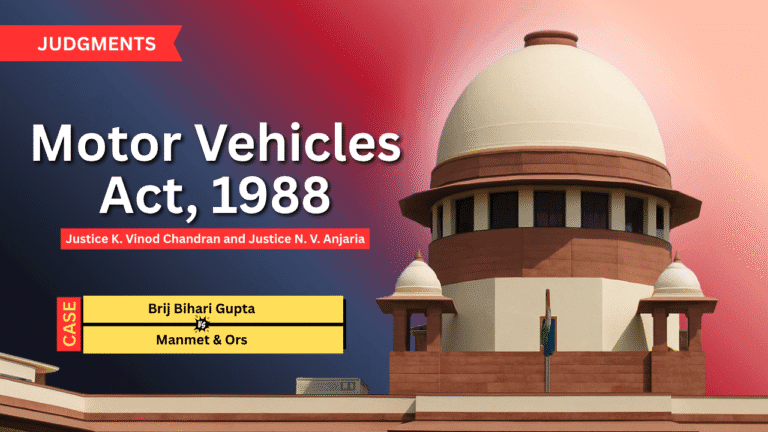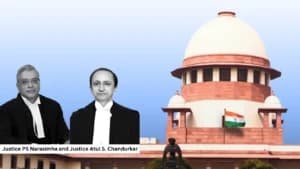The Supreme Court of India, in its judgment dated 8 August 2025, has ruled that passengers traveling in a goods vehicle along with their goods are not “gratuitous passengers”, and the insurer remains liable to pay compensation under Section 147 of the Motor Vehicles Act, 1988.
Background of the Case
The appeals arose from orders of the Chhattisgarh High Court at Bilaspur, which had partly set aside awards of the Motor Accidents Claims Tribunal (MACT) relating to deaths and injuries in a road accident.
Read also:- Supreme Court Hears High Court Judge's Plea Against In-House Procedure for Removal
- The Tribunal had awarded compensation in 11 claim petitions.
- The insurance company challenged only three awards, claiming no liability since the passengers were “gratuitous” and the driver was the de facto owner under an agreement, though the registered owner’s name remained on record.
- The Tribunal had held the registered owner, driver, and insurer jointly and severally liable.
The High Court absolved the insurer of liability in its judgment, but in some appeals, it enhanced the compensation for the claimants.
The apex court, comprising Justice K. Vinod Chandran and Justice N. V. Anjaria, addressed key issues:
1. Passengers Were Not Gratuitous
Evidence showed that:
- In one case, the injured claimant was a fishmonger transporting a basket of fish for sale.
- In another, the deceased was a vegetable hawker accompanying goods.
The Court noted:
“A person sitting in a goods vehicle to safeguard their goods cannot be considered a gratuitous passenger.”
Read also:- 13 Judges Challenge SC's Administrative Authority Over High Courts
The Tribunal had accepted this finding, but the High Court interfered without any supporting material. The insurer failed to prove otherwise.
2. Ownership Transfer Dispute
The insurer argued that the appellant (driver) was the actual owner under a sale agreement. However:
- The agreement stated that ownership transfer would occur only after full payment.
- At the time of the accident, the registered owner had not transferred ownership as per Section 50 of the Motor Vehicles Act.
Citing Naveen Kumar v. Vijay Kumar (2018), the Court reiterated that liability rests with the registered owner, and the insurer must indemnify them.
3. Selective Appeals by the Insurer
The Court also noted that while there were 11 claim petitions, the insurer chose to appeal only three, leaving the rest unchallenged — a “pick and choose” approach.
Read also:- Power Supply Disruption in Supreme Court’s Lawyers Chambers on August 9: Official Notice Issued
4. Lok Adalat Settlements
Two appeals were dismissed as disputes had already been settled in Lok Adalat, with partial payment made and a cheque issued for the balance.
The Supreme Court allowed Civil Appeal Nos. 6338-6339/2024 and 6340/2024, directing that:
- The insurer must satisfy the awards passed by the Tribunal and modified by the High Court.
- Interest would remain at 12% from the date of claim petition for the original award, and 6% for the enhanced amount.
“Ownership was with the registered owner at the time of the accident, and it is his liability to compensate the victims, which has to be indemnified by the insurer.”
Case Details: Brij Bihari Gupta vs Manmet & Ors.
Judgment Date: 8 August 2025
Citation: 2025 INSC 948
Appeal Numbers: Civil Appeal Nos. 6338-6339 of 2024, 6340 of 2024, 6341 of 2024, 6342 of 2024















